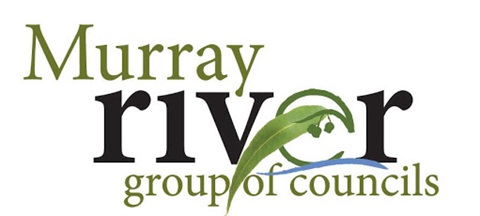MRGC: Renewed Focus on Social and Economic Impacts of the Basin Plan
Published on 11 October 2022

The Murray River Group of Councils has welcomed an updated report from Frontier Economics and Tim Cummins and Associates which clearly shows the impact of Basin Plan water recovery on communities across Northern Victoria.
As water Ministers prepare to meet to discuss the Basin Plan, this timely report puts the focus where it needs to be: on the people who live and work in the Basin.
The impact of water recovery is starkly illustrated.
It shows that water recovery has pushed up water prices on average by $72 / ML by reducing supply.
It shows that, in the Goulburn Murray Irrigation District (GMID), farmers face increased risk with more reliance on the allocation (temporary water) market.
It shows water recovery has been the main cause of the reduction in milk production in the GMID. The flow on effect of which has been felt in Rochester and Leitchville with the closure of their milk processing plants.
It also shows the risk to horticulture in the lower Murray of the next dry period which it forecasts will see thousands of hectares of high value trees lost.
These impacts will continue to affect the lives of thousands of people who rely on irrigated agriculture in northern Victoria, but will also be felt down the supply chain.
For farmers, increasing water costs add to the already skyrocketing costs and headwinds in the economy like fuel costs, farm labour shortages, and the increasing costs of fertiliser. These will have a knock on effect on prices up the supply chain, at a time when cost of living pressures are already being felt across the country.
Northern Victoria stands to lose up to $450 million a year in gross agriculture production value and up to 1500 farm jobs if the worst case scenarios around the remaining water recovery are realised.
MRGC Spokesperson Councillor Bill Moar said, “In Victoria, over 800GL of mainly High Reliability Water Share has been transferred to the Environmental Water Holders.
“This report is the latest in a long line that shows that this has come at a cost to our region, to our farmers, to our towns, to our communities.
“It confirms the findings of the previous report and shows why we need real socio- economic criteria to show the impact on people and communities of recovering water.
“We want Ministers to recognise the hard work that has gone into recovering water for the environment and have the wellbeing of communities front and centre of their minds when they meet.
“People are nervous when they hear about more buy-backs and shortfalls and 2024 deadlines because they know the impact that more water recovery will have. They live the reality of higher farming risk and its impact on mental health, of manufacturing jobs lost to our towns when plants shut.
“Agriculture and food manufacturing provide one in four of jobs in across our region and are the real economic drivers for us and produce high quality food and fibre to the nation.
“COVID has shown us that we need to build more resilient food supply chains and be less dependent on fragile import supply chains.
“The fact is, if you take any more water out of northern Victoria, there will be negative social and economic impacts and this report shows what they will be: from increased water prices, to hundreds of millions of dollars lost to farm gate incomes, jobs gone, and then there is the impact on manufacturing and other industries and it all ends up pushing up prices for everyone.
“Ministers have an opportunity here, and not just that, a responsibility, to give people clarity.
“We urge Ministers to work together to sensibly extend the deadlines for those Basin projects that we know can’t be completed by 2024” said Cr Moar.
“Critically, we want Ministers to keep the people of the Basin in mind when they work to come up with a credible, transparent plan for any future water recovery and make sure that it is done with as little impact on communities as possible” said Cr Moar.